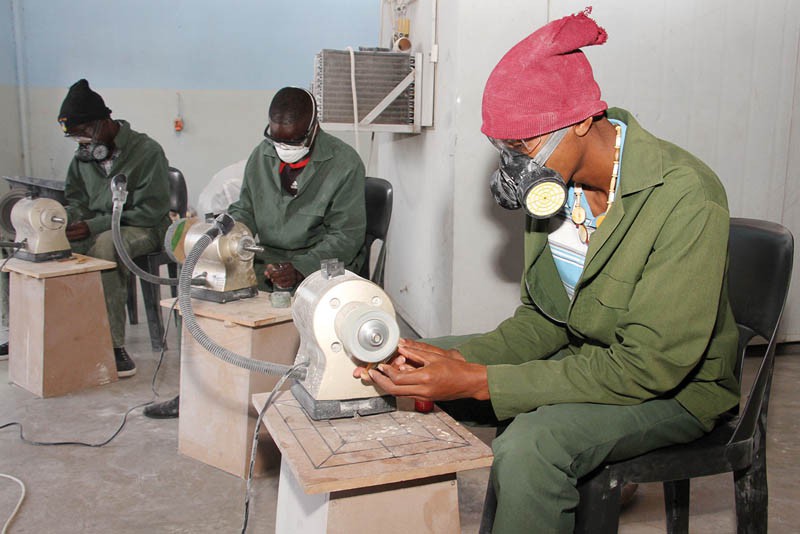Bone project excites Phikwe�s jobless youth
Onalenna Kelebeile | Wednesday January 21, 2015 11:51


The youth group known as Brothers for All, operates under Mothers for All Charitable Organisation. It has carved a niche into the business that is the first of its kind not only in Selebi-Phikwe but in the country. Mothers for All provides support and training for caregivers of vulnerable children in Botswana.
Brothers for All youth are already dreaming big that the business will catapult their economic lives to greater heights.
A caregiver with Mothers for All was brutally murdered by an ex-boyfriend and the organisation decided to honour her by working with young men to address high levels of domestic violence in the country. Hence, Brothers for All was conceived with the aim to provide young men with job skills together with training on positive male role models and hopes to increase their economic opportunities.
The day the young men responded to an advertisement by Mothers for All looking for unemployed young men to be trained for the cow horn and bone recycling project presented a turnaround for their lives.
The youth aged between 21 and 25 years said they applied out of desperation of unemployment and did not have any idea what the project would entail. “We were just curious to know what product could be carved out of cattle horns and bones, as they were products we usually knew were destined for the trash bins,” said Mmilili Khutshwane. He and others were enrolled for four months training by an expert from Kenya. “We hit the ground running and started production immediately after the training with Mothers for All assisting us with raw materials, the bones that were bought in pallets from Botswana Meat Commission in Francistown,” he said.
He said everything has been made possible by the sponsorship that Mothers for All acquired from Barclays Bank. Mothers for All takes care of the workshop rentals and provides equipment.
A day for Khutswane, Totanang Ealotse, Otsile Kgang, Otsile Masegaabaa and Taolo Sekoba is characterised by cutting, polishing and designing of bones into desirable bone products that even include key holders that can have the names engraved on them.
They say they currently specialise with clean and treated bones from BMC for hygiene purposes. However the second stage of their training would involve skills of treating bones picked anywhere.
Currently the business that is still in its infancy stage is being incubated by Mothers for All who takes care of its daily running as well as monitoring the proceeds from the little sales they make. Part of the proceeds is used to order new stock from BMC.
This, according to the young men, is necessary to ensure that the business stands firm until it is able to sustain itself. The sale of their new products has already started and has received positive response so far though Batswana have not warmed up to the fact that bones can make good products except foreigners. The men rely on Mothers for All for marketing of their products to different companies.
“We gave it a try to sell our products in December last year and the response was impressive,” said Ealotse.
They youth said though challenges are there, as it is normal for any project that undergoes teething problems, the potential they anticipate from the project outweigh the problems and this motivates them to get going everyday.
“We were unemployed and even though we cannot expect the business to yield desired outcomes overnight, we hope to reap the rewards very soon,” said one of the young men. Another challenge is that it was their very first time to venture into business and were in the dark as to what challenges to anticipate. They started training as a group of 16 young men but some quit on the way due to impatience, leaving only about seven men soldiering on.
“Once we are well established we want to share the knowledge we acquired through the assistance of Mothers for All across the country with other unemployed youth to tap into the business,” said Khutshwane.
They may not be earning anything yet, but they appreciate that they are still at infancy stage. Their wish is to see their cow horn and bone recycling project creating employment for the Selebi-Phikwe youth and eventually helping to improve the country’s tourism industry.
